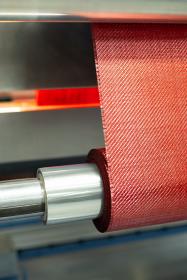Dilo Temafa: Verkauf von Anlagenerweiterung an Eco-Technilin
Dilo Temafa, ein Spezialist für Maschinen und Anlagen für die Faservorbereitung und Naturfaseraufbereitung, gibt den Verkauf einer Anlagenerweiterung an Eco-Technilin bekannt. Die Maschinen werden eine bestehende Schwungwergaufbereitungsanlage für Flachsfasern in Frankreich ergänzen, um eine höhere Faserqualität zu ermöglichen.
Eco-Technilin, ein Produzent von nachhaltigen Materialien, hat sich für die Maschinen entschieden, um seine Produktionskapazitäten zu erweitern und seine Effizienz zu steigern. Die Anlageneerweiterung ist darauf ausgelegt, Flachsschwungwerk effizient zu reinigen und den Anforderungen der modernen Fertigung gerecht zu werden, während gleichzeitig die Prozessstabilität und Anlagenverfügbarkeit erhöht werden.
Dilo Temafa ist seit mehr als dreißig Jahren im Bereich der Naturfasergewinnung tätig und hat zahlreiche Anlagen für die Aufbereitung von Bastfasern, z.B. Flachs und Industriehanf, geliefert. Die gewonnenen Fasern werden in verschiedensten Industrien, u.a. in der Bau-, Automobil-, Vliesstoff- und Textilindustrie eingesetzt und tragen zu einer Minimierung des ökologischen Fußabdrucks bei.
DiloGroup









